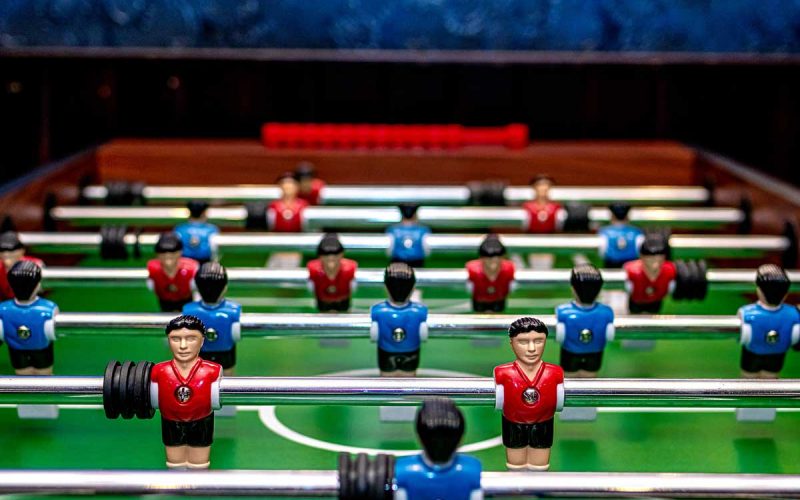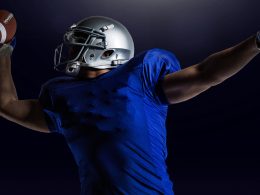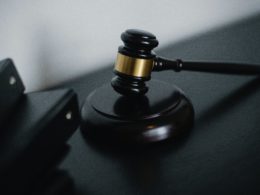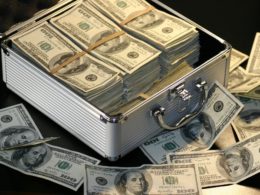Center-stage for the NCAA Board of Governors is the continuing debate over whether to allow students to accept compensation related to their athletic talents, for example, from exploiting their name, image, and likeness (“NIL”).1 Recent state legislative initiatives, however, have started to preempt this debate. Five states have passed legislation allowing athletes to profit from their NIL,2 something the NCAA has acted against for decades. Current NCAA rules prohibit student-athletes from accepting any form of payment in exchange for their name, image, and likeness.3 The NCAA’s traditional framework of “amateur athletics” prevents student-athletes from earning any income besides an athletic scholarship.4 Such prohibitions on compensation have invited criticism as the revenue generated by big-name athletic programs continues to grow into billions annually, without athletes seeing any part of that.5 The NCAA’s amateurism principle has so far survived court challenge, preserving the rule that any payment or benefit must be tied to the athlete’s education.6 However, if enough pressure is placed on the NCAA by state legislatures, this idea of amateurism could be turned upside-down. This article will provide an overview of recent state legislation and examine possible federal intervention that will change the landscape for NCAA student-athletes nationwide.
California spearheaded the change with a bill that would allow student-athletes to earn compensation from use of their name, image, and likeness.7 Governor Gavin Newsom signed the “Fair Pay to Play Act” into law during an appearance on The Shop, a talk show staring LeBron James on HBO.8 This “Fair Pay to Play Act” will allow student-athletes to earn significant income, however, limited to the “free market,” meaning the student-athlete will have to secure financial opportunities individually, without any connection to their educational institution or team.9 The payment authorized covers solely a student-athlete’s intellectual property.10 This forbids any California institution from withdrawing or withholding scholarship money based on an athlete’s receipt of compensation for his or her NIL.11 This Act also has significant provisions regarding the athlete’s entitlement to retain advisors or agents if the athlete so chooses.12
Both Colorado and Florida followed suit enacting similar bills. The California bill will not go into effect until January 1, 2023, so Florida will be the first state to allow student-athletes to profit off their name, image, and likeness as early as July of 2021.13 In the past year, more than two dozen states have proposed laws that would make it illegal for colleges to enforce the NCAA’s current NIL rules.14 On the federal level, Ohio and Missouri representatives have introduced a bipartisan bill, “The Student Athlete Level Playing Field Act,” in September 2020, encouraging more flexibility for student-athletes in profiting from endorsement deals.15 Under this proposal, student-athletes would be prohibited from contracting with any companies related to alcohol, tobacco, drugs, gambling, or adult entertainment, and the schools would have power to bar any athlete from wearing sponsored or endorsed clothing during their games or university events.16
Senator Marco Rubio’s proposal for federal legislation, the Fairness in College Athletics Act, creates a national standard for college athletics to legally get paid for activities like promotional appearances, signing autographs, or having their image used in advertising campaigns for televised sports.17 Rubio, as a former football player and avid college athletics fan, emphasizes the importance of Congress to pass a national law so student-athletes can choose their school without consideration of diverse state-level regulations.18 Rubio has warned the NCAA that it has until June 30, 2021 “to either come up with rules for this to be possible that will supersede the state rules and become the national standard or the Federal Trade Commission will have the authority to do it.”19 Five of the seven Florida Football Bowl Subdivision colleges are in support of Rubio’s proposal.20
In proposing the “College Athletes Bill of Rights,” Senator Cory Booker has joked that as an avid football fan that he “wants to see the return of the NCAA Football video game.”21 Booker’s planned legislation highlights a pathway for the video games’ comeback by granting athletes permission to participate in group licensing.22 Senator Chris Murphy, another member of the group of Democratic senators pushing for the College Athletes Bill of Rights, stresses that the athletes’ interests should come first and believes that the NCAA should not play any role in determining the types of deals athletes can and cannot engage in.23
In anticipation of the effective dates of these state enactments, the NCAA’s own legislative bodies have been working on proposals to allow college athletes to benefit from their NIL, consistent with the amateurism principle. The Division I Council approved moving forward with the proposal brought forth by the DI Legislative Solutions Group, which provides additional clarity on how the NCAA would allow for DI student-athletes to capitalize on their NIL.24 The proposal includes changes such as allowing student-athletes to be (i) be paid for autographs and personal appearances; (ii) utilize their NIL for promotional and commercial product lines and services; and (iii) utilize professional advice, marketing assistance and professional representation for contract negotiation from lawyers and agents.25
Nonetheless, concerned about recruiting advantages for colleges in states with student-athlete NIL legislation, the NCAA Board of Governors has asked Congress to step in. It has proposed a federal law that would override differences in state laws and prevent any state from gaining a “head start.”26 The proposal suggests guardrails designed to keep endorsement deals from becoming “thinly veiled salaries” or recruitment tools.27 If it is adopted, the change will include allowing student-athletes to use their NIL to:
[P]romote camps and clinics, private lessons, their own products and services, and commercial products or services…paid for their autographs and personal appearances… crowdfund for nonprofits…as well as for educational expenses not covered by cost of attendance…use professional advice and marketing assistance…as well as professional representation in contract negotiations related to name, image, and likeness activities, with some restrictions…28
Student-athletes would not be permitted to use school marks in any advertisements, endorsements, personal appearances or promotions. They would also be required to disclose any name, image and likeness activities, including compensation and sponsor relationships, to the school.29
The Power 5 Conference (ACC, Big Ten, Pac-12, Big-12 and SEC) commissioners have also weighed in, each writing to Congress to advocate moving forward with federal legislation, and not wait for the NCAA internal legislative process to play out before setting national parameters for college athletes to be compensated for use of the NIL.30 The Power 5 Conference commissioners and other college sports leaders are skeptical of the NCAA’s desire to place fair and proper guardrails. The Power 5, also known as the Autonomy 5, want Congress to “hear directly from us, as any NIL changes will have the greatest impact upon the [Autonomy 5] conferences and our member institutions.”31 However, the commissioners, following the example of the state legislation, are stressing that the payment to student-athletes should only come from third parties, not educational institutions, and any sponsorship endorsement money must be kept separate from collegiate recruitment.32 Their correspondence with Congress stresses that “time is of the essence” because many states are considering disparate NIL laws that could create chaos come time for the next recruiting cycle.33
1 Jon Solomon, The History Behind the Debate Overpaying NCAA Athletes, ASPEN INSTITUTES (April 23, 2018).
2 N.J. Rev. Stat. § 971 (2020); Cal. Educ. Code § 67456 (2019); Colo. Rev. Stat. §20-123 (2020); Fla. Stat. §1006.74 (2021); Neb. Rev. St. §48-3601 (2020).
3 National Collegiate Athletics Association, 2020-2021 NCAA Division I Manual §12.5(1)(1)(h)(2020)
4 Id. at §2.9.
5 Steve Berkowitz, Texas Athletic Program Reports More Than $219 Million in Revenue During 2018 Fiscal Year, USA TODAY (January 15, 2019).
6 In re NCAA Ath. Grant-In-Aid Cap Antitrust Litig. 375 F.Supp. 3d 1058 (9th Cir. 2019)
7 Cal. Educ. Code §67456 (2019).
8 Bleacher Report (@BleacherReport), Twitter (September 30, 2019, 10:10 am), (California governor Gavin Newsom signs bill that will allow California college athletes to profit off their name, likeness and image).
9 Adam Wells, Florida to Be 1st State with NIL Rights for NCAA Athletes to Profit Off Likeness, Bleacher Report (June 12, 2020).
10 Id.
11 Id.
12 Id.
13 Id.
14 Id.
15 Dan Murphy, Bipartisan Federal NIL Bill Introduced for College Sports, ESPN (September 24, 2020).
16 Id.
17 Alex Daughtery, Rubio Introduces Bill to Compensate NCAA Athletes for Name, Image and Likeness, Tampa Bay Times (June 19, 2020).
18 Id.
19 Id.
20 Id.
21 Ross Dellenger, Inside the Landmark College Athletes Bill of Rights Being Introduced in Congress, Sports Illustrated (December 17, 2020).
22 Id.
23 Janet Lorin and Brandon Kochkodin, Senator Renews Demand for College Athletes’ Pay Amid Restart, Bloomberg (September 18, 2020).
24 Mma Afoaku, NCAA DI Council Approves Name, Image, and Likeness Proposal Ahead of the Big Vote, Frankfurt Kurnit Klein & Selz (October 30, 2020).
25 Id.
26 Id.
27 Id.
28 DI Council Introduces Name, Image, and Likeness Concept into Legislative Cycle, National Collegiate Athletics Association (October 14, 2020).
29 Id.
30 Associated Press, Power Five Leagues Ask Congress for Athlete Compensation Law, (May 29, 2020).
31 Id.
32 Id.
33 Id.




